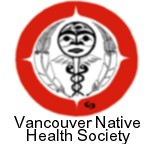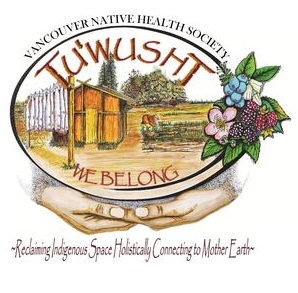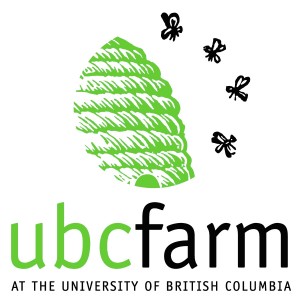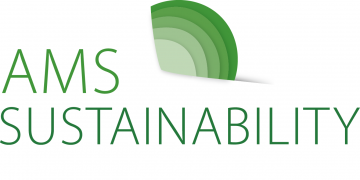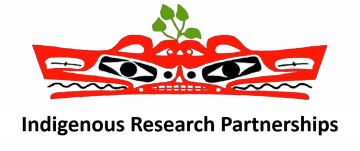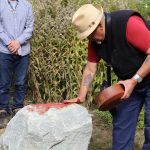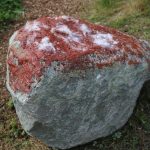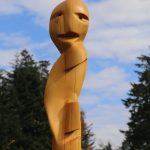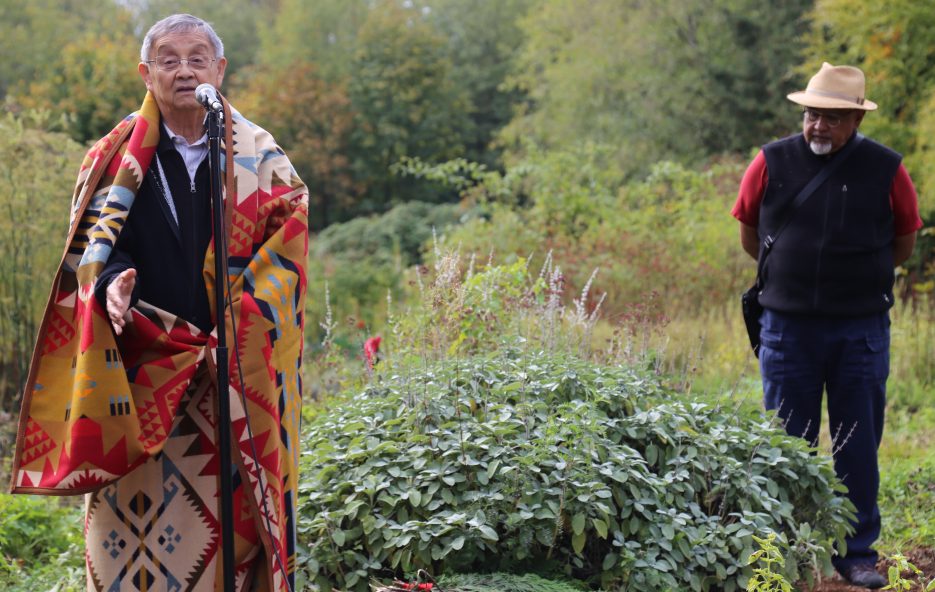
The Indigenous Health Research and Education Garden has been based on unceded ancestral Musqueam territory at the UBC Farm . The Garden was established in 2007, by Dr. Eduardo Jovel, First Director of the UBC Institute for Aboriginal Health (IAH). Upon closure of the IAH the garden was transferred to the Indigenous Research Partnerships, Faculty of Land and Food Systems.
With an emphasis on teaching,community engagement, and research,the garden aims to serve the educational and research needs related to Indigenous knowledge and its intersections with other ways of knowing and praxis. Garden Programming and initiatives are particularly focused on food security, traditional plant knowledge, wand land-based pedagogies while increasing participants’ knowledge and access to both traditional and non-traditional plants uses. The garden is guided by the principle that ‘food is medicine’ and follows the research ethic framework of the “4R’s: respect, relevance, reciprocity, and responsibility” and a holistic understanding of health and healing. In addition to its international, community-based research, the garden engages with numerous regional Aboriginal schools, communities, and organizations.
The Indigenous Health Research and Education Garden hosts the Culturally Relevant Urban Wellness program, which brings urban Aboriginal and recent immigrant youth to the garden from March to October. It also hosts Sharing our Wisdom: A Holistic Aboriginal Health Initiative, a research project focusing on understanding the effectiveness of traditional Aboriginal healing knowledge when addressing health inequities experienced by Aboriginal peoples. Food harvested from the garden is used as part of a monthly community Feast Bowl which brings together students, staff, faculty, and members of the public to cook and eat. The garden includes numerous medicinal plants native to B.C. and and other places. These native medicinal plants are used in medicine-making workshops and to share traditional knowledge with the Medicine Collective, a group of Indigenous Elders and Knowledge-Keepers. We host a number of student internships each season placed in the garden, CRUW program, and Feast Bowl that supports UBC students in gaining hands-on learning and research while gaining credit towards their degree.
For up-to-date information about the garden, you can download a three-page summary of highlights from our programs in 2014 here.
Get involved
Please join us for our weekly garden volunteer sessions, all skill levels, abilities, and ages welcome.
How to volunteer for garden volunteer sessions: we work in the garden rain or shine, so come dressed for the weather. We have extra rain boots, gardening tools, and gloves to share. Bring a snack and water bottle – bring friends and family (of any age) too! No experience necessary. You will find us in the Indigenous Health Garden at the UBC Farm. The most up-to-date directions to the UBC Farm can be found here. Once at the Farm, you can follow the “xʷc̓ic̓əsəm Garden” signs or follow this map to find our garden.
To learn more, you can sign up for the Indigenous Health Research & Education Garden Newsletter. You can also contact Dr. Eduardo Jovel, Director of Indigenous Research Partnerships at eduardo.jovel@ubc.ca.
[portfolio_slideshow id=659]
The Indigenous Research and Education Garden works on and acknowledges the unceded ancestral territory of the hən̓q̓əmin̓əm̓-speaking xʷməθkʷəy̓əm (Musqueam) peoples, whose guidance and collaboration is so important to this work. The Garden also acknowledges its other supporters and partners: the Vancouver Native Health Society, the Tu’wusht Garden Project, the Musqueam Garden, the Maya in Exile Garden group, the Centre for Sustainable Food Systems at the UBC Farm, the AMS Sustainability Fund, the Indigenous Research Partnerships, and the Faculty of Land and Food Systems at UBC.
